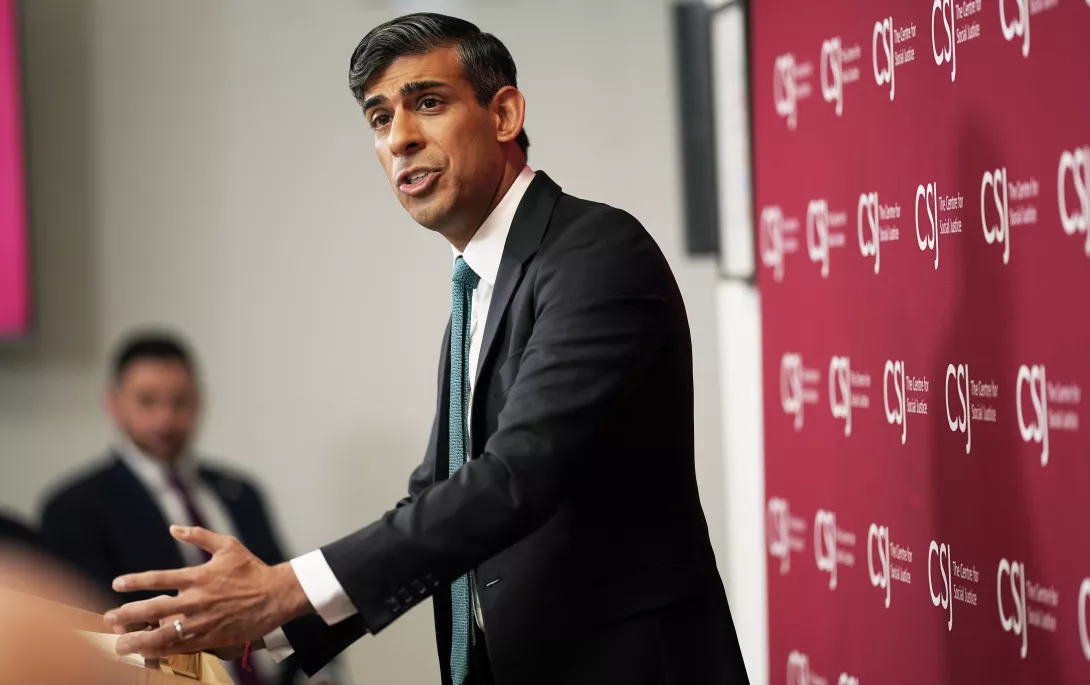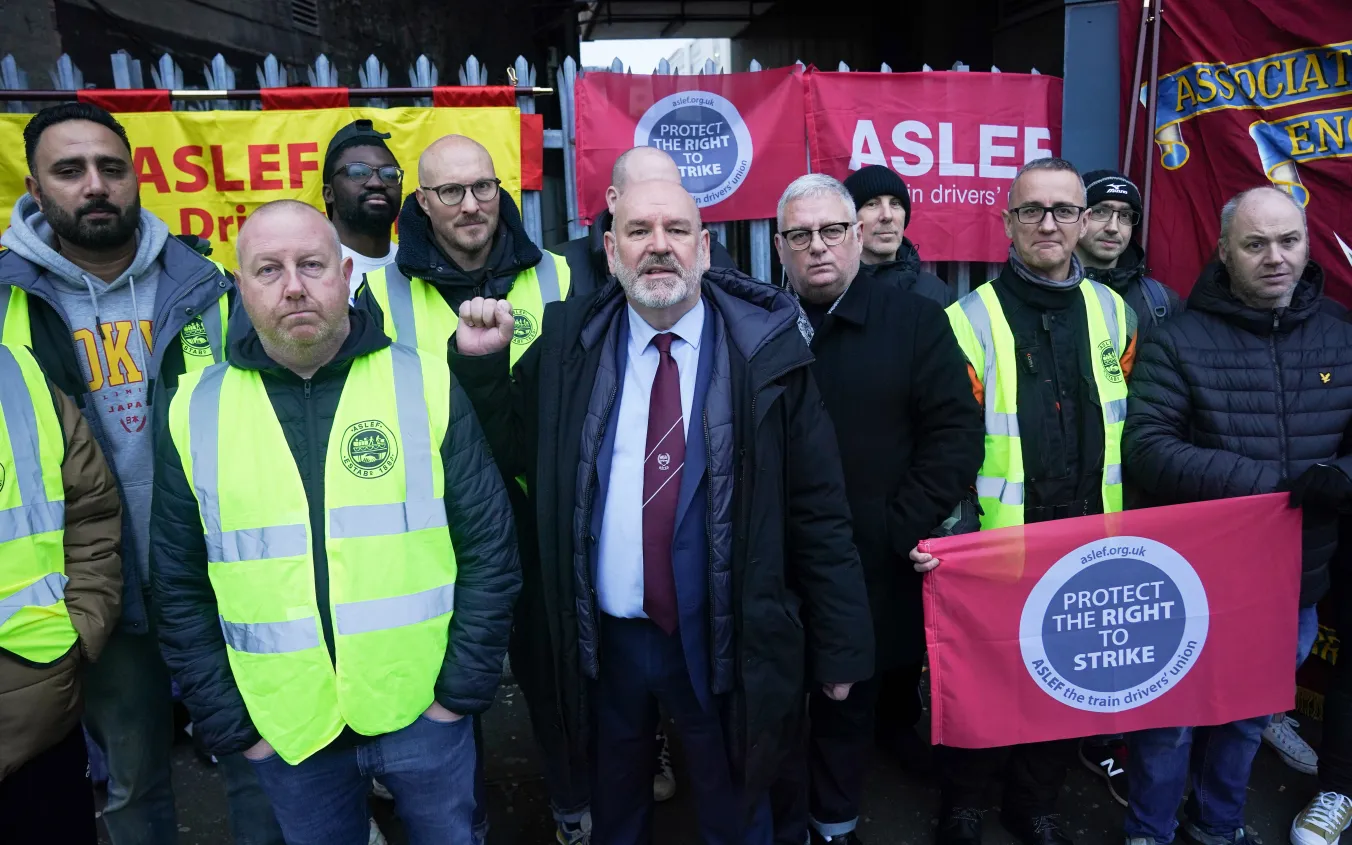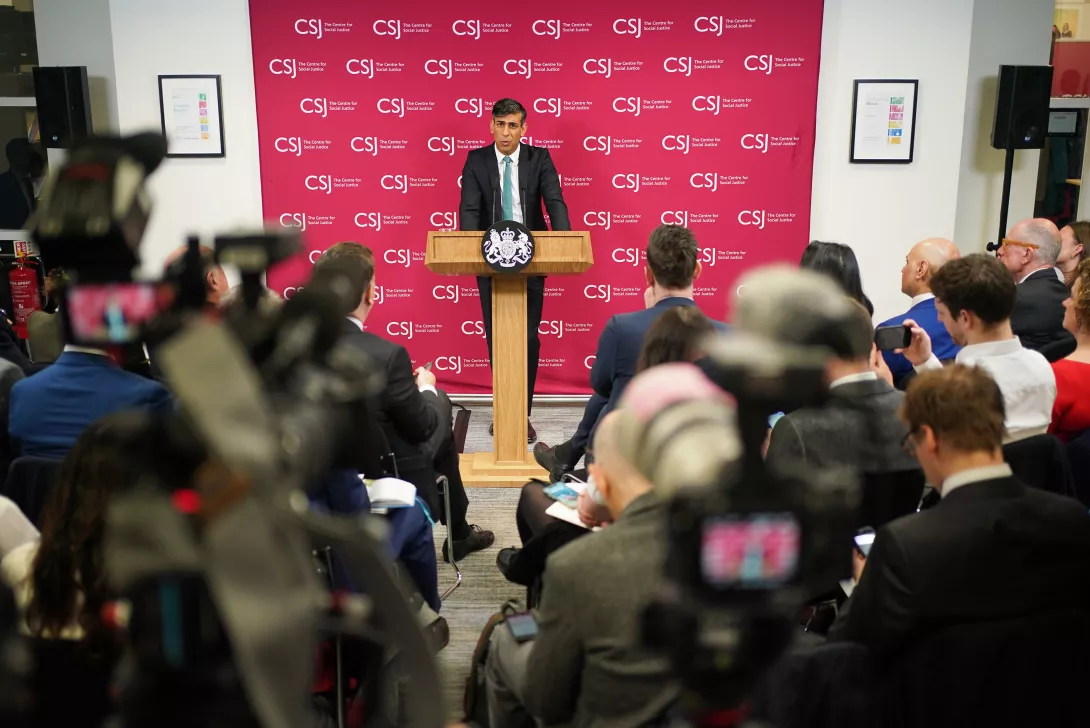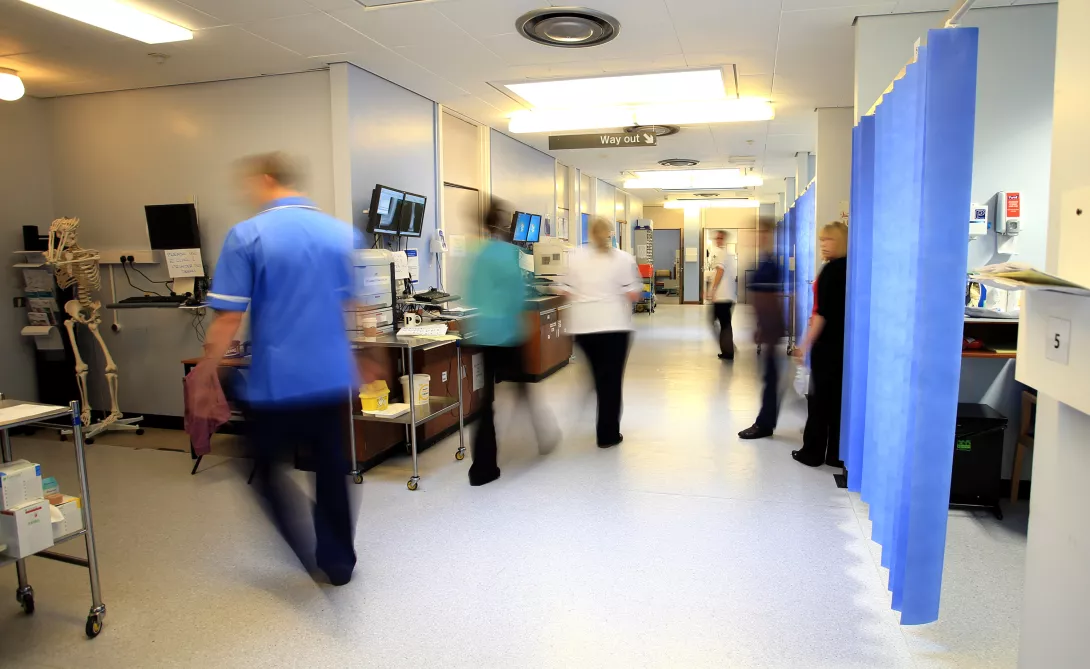
WE approach Workers’ Memorial Day, with its focus on those who have been killed, injured or made sick through work, as the Prime Minister announces a crackdown on “sick-note culture.”
Ministers are alarmed at a rise in people calling in sick. There is a risk, Rishi Sunak believes, that we are “overmedicalising the everyday challenges and worries of life.” “Good work,” he emphasises, is good for your health.
“Good work” probably is. His government must therefore be held accountable for the deterioration in living and working conditions that is making Britain sicker.
The Tory attack on “sick-note culture” is victim-blaming. It’s a bid to revive the “shirker and striver” propaganda of the Conservative-Lib Dem coalition a decade ago, that demonised, humiliated and in some cases killed chronically ill people subjected to medically incompetent “fit for work” tests.
Sunak says we should focus not on what people can’t do but what they can do, so let’s take a look at what ministers could do if they were genuinely concerned at rising sickness.
The most obvious is to invest in the NHS. Its underfunding leads to low pay, and health workers’ pay has fallen sharply in real terms since 2010. That is one cause of difficulty recruiting, which leaves the service with over 100,000 vacancies; stretched hospital budgets are another. And short-staffing is directly linked to the NHS’s seven-million-long waiting list.
Untreated health problems get worse, and may turn into chronic conditions. The NHS waiting list undermines the health of the population. An increase in people off on long-term sick doesn’t need explaining as part of a “culture”: it’s exactly what we should expect as a result.
Forcing people to work when they are ill is dangerous, undermining their health and increasing the risk of accidents. We should also think about the impact of inadequate staffing levels on NHS staff themselves: research by the King’s Fund found that NHS workers are 50 per cent more likely than others to experience chronic stress, which contributes to time off sick. Last year, the Nuffield Trust found that sickness absence in the NHS workforce had risen by 29 per cent on pre-pandemic levels.
Unless the NHS receives serious investment (not on offer from the opposition either), Britain will continue to get sicker. But it is not the only cause of our deteriorating health: in February, the Federation of the Royal Colleges of Physicians in the UK said 55 per cent of doctors were reporting a rise in ill-health caused by social and economic factors, including mouldy, damp and cold homes, poor air quality and bad working conditions.
The federation’s Professor Andrew Elder called for “better housing, cleaner air, better nutrition, better education and ensuring equitable access to basic necessities for health” — demands which require an overhaul of policy across most departments, and certainly an end to the penny-pinching austerity economics of Jeremy Hunt and Rachel Reeves.
And with mental ill-health an ever-worsening problem, its causes merit serious study. Stress itself is more and more common as a reason for sickness absence.
Sunak asks us not to medicalise the “challenges and worries of everyday life” — but here, too, we should surely ask whether these challenges and worries are worsening for avoidable reasons. Lacking a secure home, for example, is stressful — yet the government won’t address the housing crisis or even ban no-fault evictions.
Even a recent Telegraph op ed wondered whether mental distress was linked to the mismatch between people’s expectations and the grim reality of modern Britain, with its tattered social safety net, poverty wages and failing services.
The Tory — and far too often the Labour — answer to that is to lower expectations, including the expectation that you shouldn’t have to work when unwell. Our answer should be the opposite — to change the reality. But it will take a revolution.

















